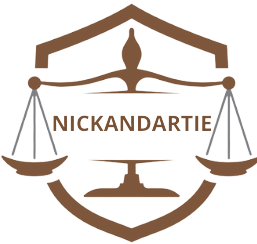
Long Island is a haven for its residents and a hub for various administrative processes, including obtaining apostilles for international use. But what is apostille documentation?
An apostille is a special certificate that verifies the authenticity of a public document for international use. The country has to be part of the Hague Convention abolishing the requirement of legalization for foreign public documents.
Finding the best agencies apostille near me that facilitate getting this certificate benefits everyone. It works for students planning to study abroad. It is also vital for businesses eyeing international expansion. Seniors seeking retirement benefits in another country can also use it. So, how do you get it in Long Island?
In this local guide, we will explore the specific steps, resources, and considerations tailored to the unique landscape of Suffolk and Nassau Counties.
Differences between Suffolk and Nassau Counties
One of the initial considerations when navigating the apostille process on Long Island is understanding the differences between Suffolk and Nassau Counties.
Are there separate processes or authorities for apostilles in each county?
Suffolk or Nassau County, Long Island residents can obtain apostilles through their county clerk’s office or directly from the state. Processing times and fees differ slightly between routes, with Nassau County offering more office locations for potential convenience.
Both counties offer additional services like notary assistance.
Consider location, processing times, fees, and available services when choosing the best option. Remember to check with the relevant authorities for the latest information.
Local Notary Services
Notary services are impartial witnesses that help verify the identity and willingness of individuals to sign important documents. They confirm that the signers understand the document’s content and act freely, not under duress.
Additionally, notaries may administer oaths and affirmations, deterring false statements.
Standard documents requiring notarization include property deeds, wills, powers of attorney, loan applications, and travel documents. Essentially, notaries safeguard document integrity and facilitate various legal and financial transactions.
Expedited Services
You seek expedited services if you have to join a school or open a business in a month without apostille certification.
Some notaries on Long Island may offer expedited services for an additional fee, ensuring that your documents receive prompt attention and are processed swiftly.
Common Document Types
The documents you need are:
- Birth and death certificates
- Marriage and death certificates
- Naturalization certificates
- Powers of attorney
- Diplomas and other educational documents
- Transcripts
- Wills
- Corporate and other business documents
- IRS letters
- S. passports
- S. driver’s licenses
- Social security letters
- And more.
Challenges and Tips
Navigating the apostille process on Long Island may pose specific challenges.
The common ones are navigating different county procedures, managing potential delays, and understanding fees.
The solutions: Investigate the procedures in both counties, noting any expedited choices and pricing differences. Plan, taking into account peak times and any requirements for document verification. Ask the issuing authority—your county clerk or the state office—to clarify requirements directly. Lastly, use notary services to guarantee the authenticity of documents and possibly expedite the transaction. On Long Island, you can expeditiously receive your apostille by organizing and comprehending the procedure.
Get You A Reliable Apostille Service Provider
Now that you know how vital these services are, find a reliable service provider in the nearest office.
